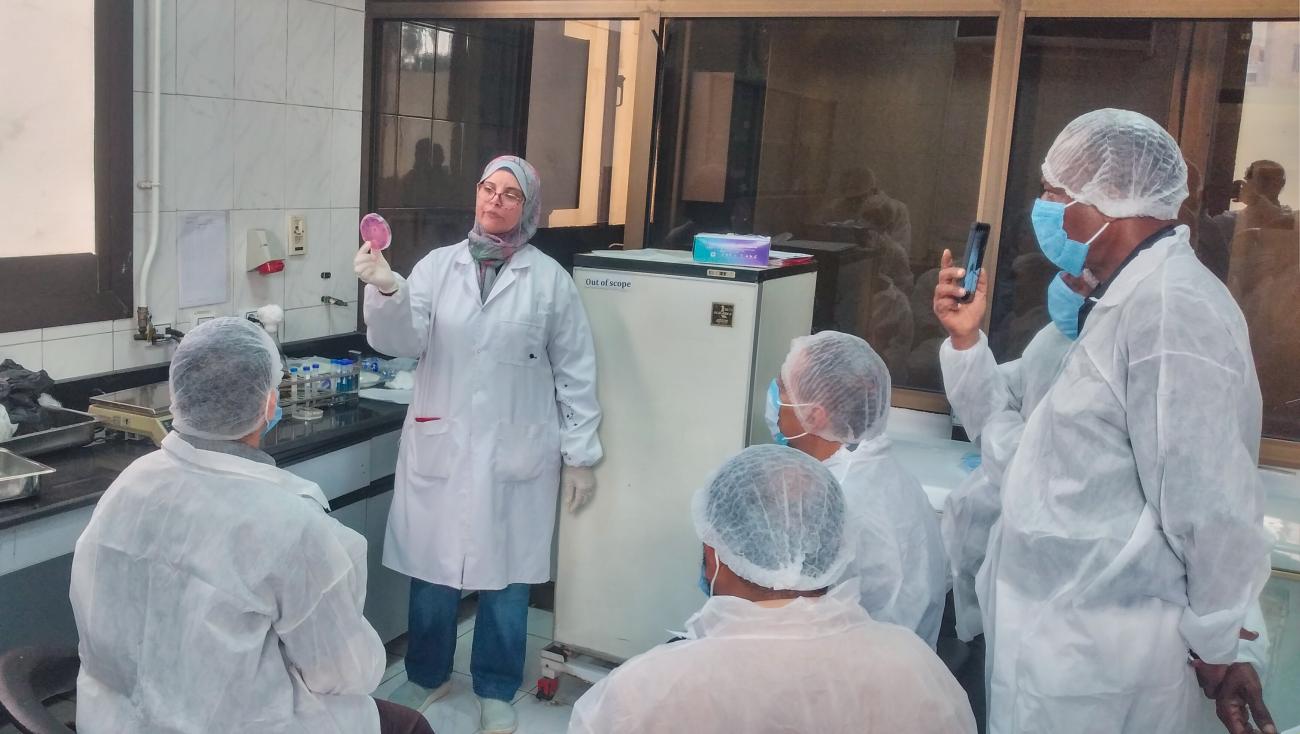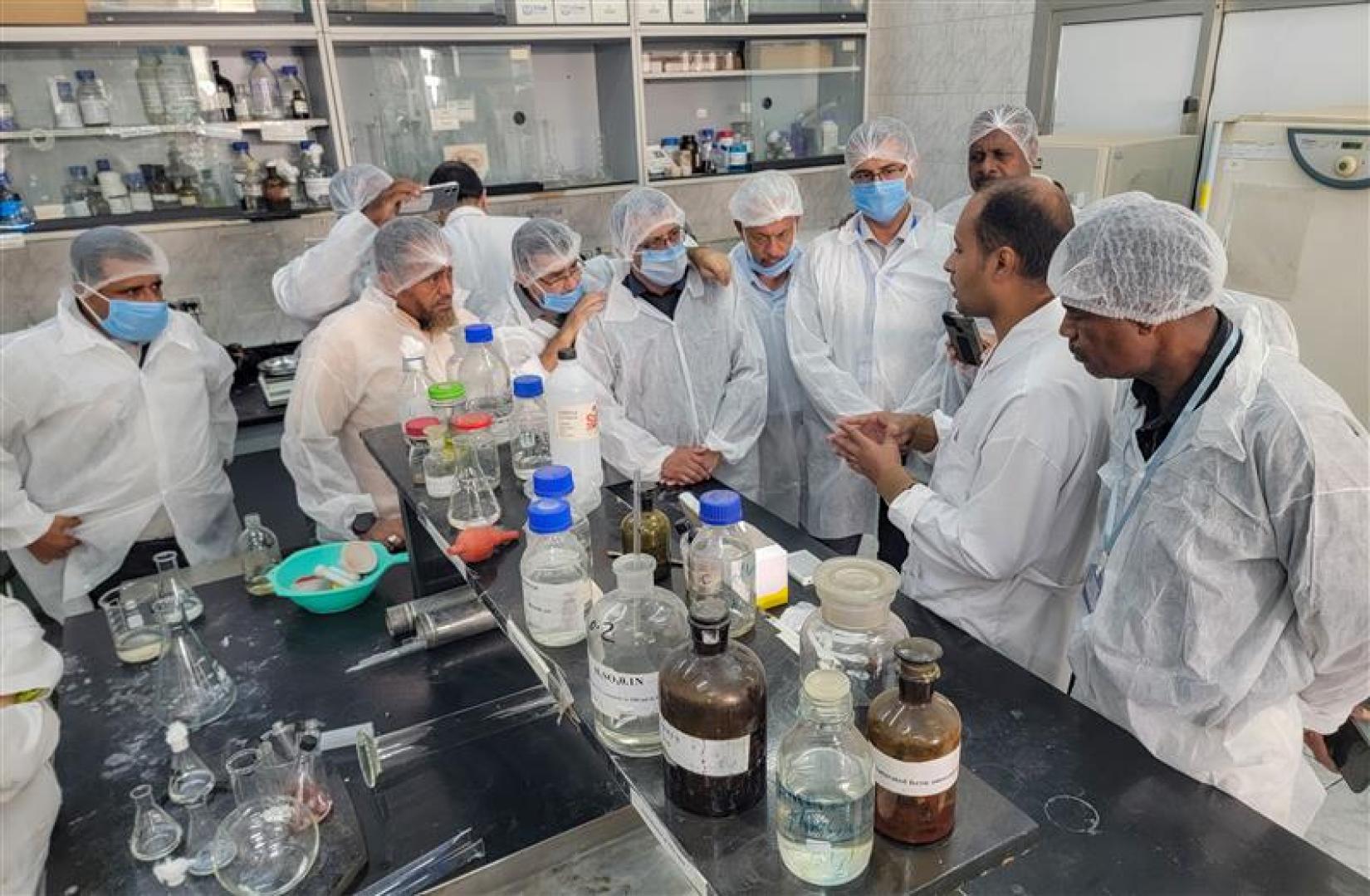FAO Yemen: Strengthening Yemen’s Veterinary Services for timely Detection and Control of Pandemics

---
Years of conflict in Yemen have further weakened Yemen’s veterinary services capacity, hindering efforts to effectively detect, control, and manage outbreaks of transboundary animal diseases (TADs) and zoonotic diseases, presenting serious risks to rural communities, the economy, and public health. In response, the Food and Agriculture Organization of the United Nations (FAO), through the Yemen Pandemic Preparedness and Response Project funded by the Pandemic Fund, has embarked on initiatives to strengthen Yemen’s veterinary services capacity to safeguard animal and human health.
A key component of these efforts is intensive advanced veterinary laboratory training conducted from 16th September to 1st October 2024, where 12 Yemeni veterinary professionals received hands-on training in advanced laboratory technologies and from 17th to 28th November 2024, where 10 key surveillance officers, received an advanced training program on veterinary surveillance, quarantine management, and food safety from the Animal Health Research Institute (AHRI) in Cairo, Egypt. The capacitated core technical staff, who have already received training, are expected to train an additional 200 laboratory, surveillance, quarantine management, and public veterinary health technicians at the governorate and district levels, as well as a larger number of community-based veterinary service providers, para-veterinarians, and animal health workers. This overall strengthens Yemen's preparedness and capacity to predict and respond to pandemics, zoonotic and transboundary animal diseases, and One Health threats.

Dr. Abdihakim AlWaer, FAO Assistant Director-General and Regional Representative for the Near East and North Africa, who opened the training appreciated the support of Egypt’s Ministry of Agriculture and the Animal Health Research Institute for facilitating the training, noting that it represents the shared commitment of both countries to regional livestock sector development and disease and pandemics control. He emphasized the importance FAO give to such cooperation and partnership between the countries in the region as part of the FAO initiated South-South Cooperation and Arab-Arab Cooperation framework.
Dr. Hussein Gadain, FAO Representative in Yemen, acknowledged that building Yemen’s veterinary capacity to detect, diagnose and treat livestock diseases is critical for safeguarding both national and regional health security of animals and humans,” He further noted that “Through these capabilities, Yemen can better respond to disease outbreaks, protecting the livelihoods of smallholder farmers and preventing the spread of disease beyond its borders.”
In addition, FAO is investing in critical infrastructure within Yemen, including the establishment, rehabilitating and equipping of veterinary laboratories, quarantine stations, port veterinary offices, and surveillance centers. The FAO-supported community-level capacity-building programs also link the community-based service providers to the farmers in the remote and hard-to reach areas, fostering stronger systems for immediate disease reporting, notification, and response.
Dr. Abdulrahman Al-Khateeb, Director General of Animal Health and Veterinary Quarantine in Yemen, noted the profound impact of FAO’s support. “These capacity building programs from FAO has been invaluable in improving our laboratory operations, border control, quarantine stations, and surveillance centers across Yemen. With this expertise, our trained professionals can now train others, extending our capacity to control livestock diseases more effectively,”.
FAO’s initiatives are a critical step toward enhancing Yemen’s resilience against pandemics and disease outbreaks, safeguarding the livelihoods of rural communities, and supporting public health and economic stability in the country.

